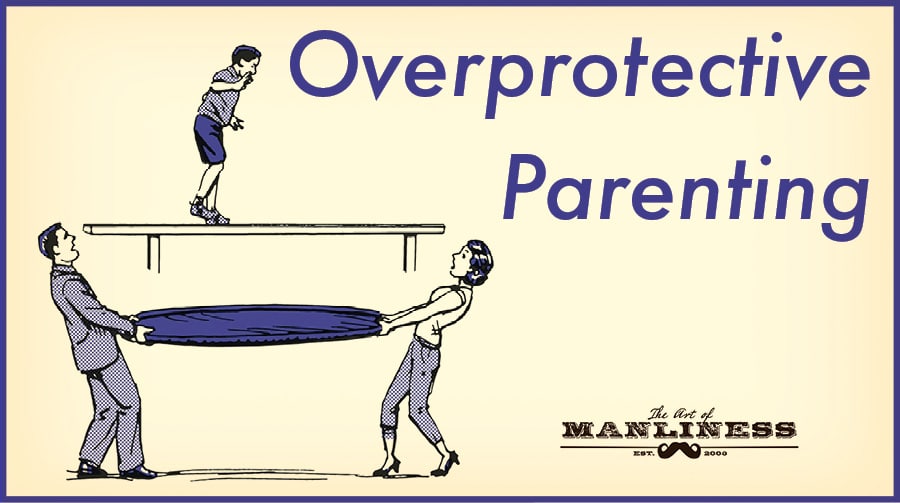By Amanda Morin from https://www.understood.org/en/family/taking-care-of-yourself/dealing-with-emotions/how-to-avoid-being-overprotective-of-your-child
At a Glance
- It can be hard not to cross the line between protective and overprotective parenting.
- Fear and anxiety about your child’s issues can lead you to be overprotective.
- Avoiding patterns of overprotective parenting can let you help your child be more independent.
It’s natural to want to protect your child, especially if he faces challenges from learning and attention issues. But it’s all too easy to fall into the trap of protecting him too much. Overprotecting your child may feel good at first. But it doesn’t let him develop the skills he needs to succeed—or the sense of accomplishment and independence that comes from working to master them.
Overprotection can take many forms. Some parents may try to head off every problem before it comes up. Some may find it easy to let little expectations slide or to do everything for their child. And sometimes when a child’s issues include problem behaviors, parents may not feel comfortable enforcing limits.
Using strategies like these once in a while doesn’t mean you’re overprotective. But if they become your go-to moves, they can add up to a pattern of overprotective behavior. Here are five guidelines to help you control these natural impulses and help your child learn to succeed.
Don’t fear firsts.
From his first steps to his first date, your child will try many new things. His learning and attention issues might make these milestones harder for him to manage. But that doesn’t mean he shouldn’t have the chance to try.
Instead of feeding any fears your child may have with your own, come up with plans to address them without holding your child back. For example, if you’re worried about having him ride the bus on his first day of school, don’t just offer to drive him. Instead, consider asking whether he’d like you to follow the bus in your car so you both know you’re there if he needs you.
Acknowledge everyone’s anxiety.
When your child heads to sleepaway camp or a playdate without your supervision, both of you may feel anxious. You may be tempted, on the one hand, to downplay his anxiety or your own. Or, on the other hand, you may want to have him stay home.
Unlike either of these options, talking through your concerns together helps your child know that it’s OK to be anxious—but that it shouldn’t stop him. Discuss what each of you is anxious about. Then figure out ways to troubleshoot problems and come up with contingency plans together. Letting your child try new activities teaches him he’s capable of doing things that make him nervous—and it shows you that he’s capable, too.
Establish and stick to expectations.
If your child is prone to tantrums or anger, it may seem easier to drop an issue than to enforce rules for good behavior. But establishing—and insisting on—everyday expectations for your child lets him know he’s accountable for his actions and that you believe he can behave appropriately. It also sets the stage for the rules that come with bigger responsibilities, like having a cell phone or learning to drive.
Consider working out reasonable rules with your child so that you get his “buy-in.” Then write them down so there’s no doubt about what they say. And when it does come time for cell phones and cars, you’ve set the precedent for having a written contract you both have to follow!
Let your child make mistakes.
When your child is having trouble with friendships, facing issues at school or struggling in his first job, you may be tempted to jump in. That’s especially true when you feel like what’s happening is linked to his learning and attention issues.
Unless your child is in danger or is going to make a mistake he can’t recover from, consider stepping aside. Letting your child make mistakes doesn’t mean you’re setting him up to fail. It means you’re setting him up to problem-solve on his own and learn the skill of self-awareness.
Give up the guilt.
Many parents of kids with learning and attention issues feel guilty. That guilt can lead you to do more than you should for your child. And that can make your child feel that he’s different or that you think he needs protection from things that are too hard for him.
Letting go of that guilt does more than just make you feel better. It helps you give your child a chance to discover the strengths he can develop from mastering his challenges.
Teaching your child the skills he needs to be independent might be harder than just doing things for him. But it’s well worth investing the time and energy. Being protective—but not overprotective—is the most effective way to help your child learn the skills and strategies he needs to get through tough situations and everyday life.
Key Takeaways
- Letting go of your guilt about your child’s learning and attention issues is one way to avoid being overprotective.
- Setting and sticking to rules makes it easier to avoid doing everything for your child.
- Letting your child make mistakes helps him learn to be more independent.
About the Author

Amanda Morin is a parent advocate, a former teacher and the author of The Everything Parent’s Guide to Special Education.
Reviewed by

Mark Griffin, Ph.D., was the founding headmaster of Eagle Hill School, a school for children with specific learning disabilities.

No comments:
Post a Comment